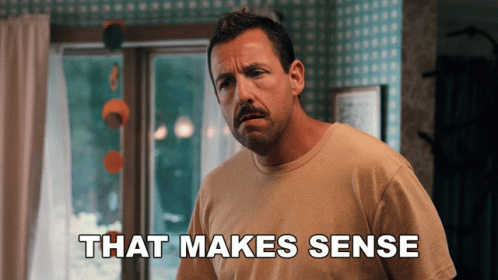Stop! Why you might not have to pay off your student loans ASAP.
Oct 25, 2023
I'll never forget the moment I learned I had $34,000 in student loans to pay off.

I was sitting in the financial aid office during my graduation week. Just 24 hours earlier, I had taken my mom out to dinner to thank her for paying for college and offered to take over the loan. I had it in my mind that I only owed about $5,000. I was prepared and excited to take on that responsibility.
So it was a shock when I found out there was an extra $29,000 tacked on.
I had no concept of how much money $34,000 was. Was that a necklace 👑, a car 🚗, a home🏠? I didn't understand what paying off something for 30 years would look like! In truth, I’d never had a bill before.
For many of us—at least one in eight Americans— our first introduction to bills comes in the form of a seemingly insurmountable amount of debt, which can cause many different reactions: avoidance, denial, or serious tunnel vision to pay it off as soon as possible.
It may come as no surprise that this sticker shock and the high sums of debt trick many people into throwing as much money as they can toward paying down their student loans. It's relatively common to see people rack up credit card debt because their student loan payments are so high. (raises hand) I have worked with clients who were paying 45% of their income per month towards their student loan debt. They were so frustrated by feeling completely out of control, racking up credit card debt just to support their basic needs when in reality, they only had 55% left of their money to pay rent and eat.

Having student loan debt can feel like the end of the world when in reality it’s really not. With the right plan in place it can feel completely manageable, but the emotional trauma of being blasted into adulthood with an undefinable amount of student loan debt can have a lifelong effect on how we treat our money and what we believe to be true about debt and savings. I know I felt that I was going to be shackled to my debt forever.
Many finance coaches preach that all debt is bad and only focus on paying it off. If you look under hashtags like #debtfreecommunity, you’re likely to find entire forums for people who are committed to paying down their debt at all costs, not eating out, not attending weddings or birthdays, and worst of all, not saving.
We say no way!!!
You must pay off your debt AND simultaneously build short- and long-term savings, even if it means it takes you a little longer to get out of debt. Just focusing on debt repayment is the worst thing you could possibly do for your emotional, physical, and financial self.
Spending years paying off debt without saving can feel demoralizing in the long run. While paying off debt is often a net positive experience, if you aren’t also building up your savings, or sacrificing so much of your day-to-day life to pay off the debt, it is common to feel very resentful, stressed, and overwhelmed.
A study conducted by the Money and Mental Health Policy Institute revealed that 46% of borrowers struggle with their mental health. When people feel threatened—by an ever-growing amount of debt, for example—it can trigger an increase in cortisol levels. Cortisol is an essential hormone for energy and vitality, but an overproduction of cortisol can cause long-term damage to cells. Read Fight or Flight Your Budget Can Help
Then there’s the physical toll of hustling. While it might be easier in our 20s and 30s to work extra hours at the office or pick up extra shifts, working those long hours and still living paycheck to paycheck can weigh heavily on you long-term. No one likes to feel like they’re walking a tightrope between just getting by and being financially devastated by an unplanned trip to the emergency room, or a cat getting sick, or a car breaking down— especially because this could have a debt ripple effect.
And lastly, only focusing on debt repayment and not saving or setting up a monthly budget will directly impact how comfortable you will be in the future. The longer it takes you to start investing and growing your cash accounts, the longer it will take to catch up later.
I’ve seen clients who are so focused on paying off the debt that it clouds their ability to see the future, making them feel lost and afraid to set goals and even talk about their finances. I so often hear clients say, “I can't possibly think about the future when I'm in this much debt.” But here's the reality: debt and your future have very little to do with each other. Having debt should not be a deterrent from making plans and living the life of your dreams.
Uncle Biden is very unlikely to pay off your student loans, so we need to have the debt repayment conversation. But it’s important to look at the whole picture. You must create a monthly budget that takes into account putting money towards your future as well as your debts.
So how do we do it? Here are some rules I give my clients when we discuss getting out of student loan debt.
- If you do not have an emergency fund, stop overpaying on your student loans. Focus on building at least 3 to 6 months of an emergency fund before you start paying more than your minimum monthly student loan payment.
- If you have credit card debt, focus on paying that off before putting extra money towards your student loans. Start by paying off the card that has the highest interest debt.
- If you have a high-interest rate on your student loans, work on improving your credit score to refinance for a lower interest rate. The best way to improve your credit score is to pay down credit card debt so that you have a higher debt to credit ratio.
- Start putting a small amount towards your retirement. Get into the habit of contributing a certain percentage of your income per paycheck. If you're building up your cash funds, start by contributing 1% of your income. Gradually work up to 2%, 5%, with an ultimate goal of at least 10%.
If your monthly student loans payments exceed more than 10% of your income, it will be challenging for you to save, pay off debt, and live comfortably. Ask your provider if you can lower your monthly payments. If they cannot reduce your monthly payments, shop around to other lenders and see what rates and monthly payments you can negotiate.
We cannot control the initial reaction we had towards our student loan debt but we can control how we feel about it now. Student loan debt does not divine your financial reality. It’s important to take a pause and plan your debt repayment strategy; remember that you are in control of your wealth and financial wellbeing. You don’t have to figure this out alone.
Want more: Read Demystifying $39 Billion in Student Loan Discharges: What You Need to Know
Beyond The Basics: Our Glossary Of Financial Terms
We define the lingo you'll need to become a finance expert!
We hate SPAM. We will never sell your information, for any reason.


